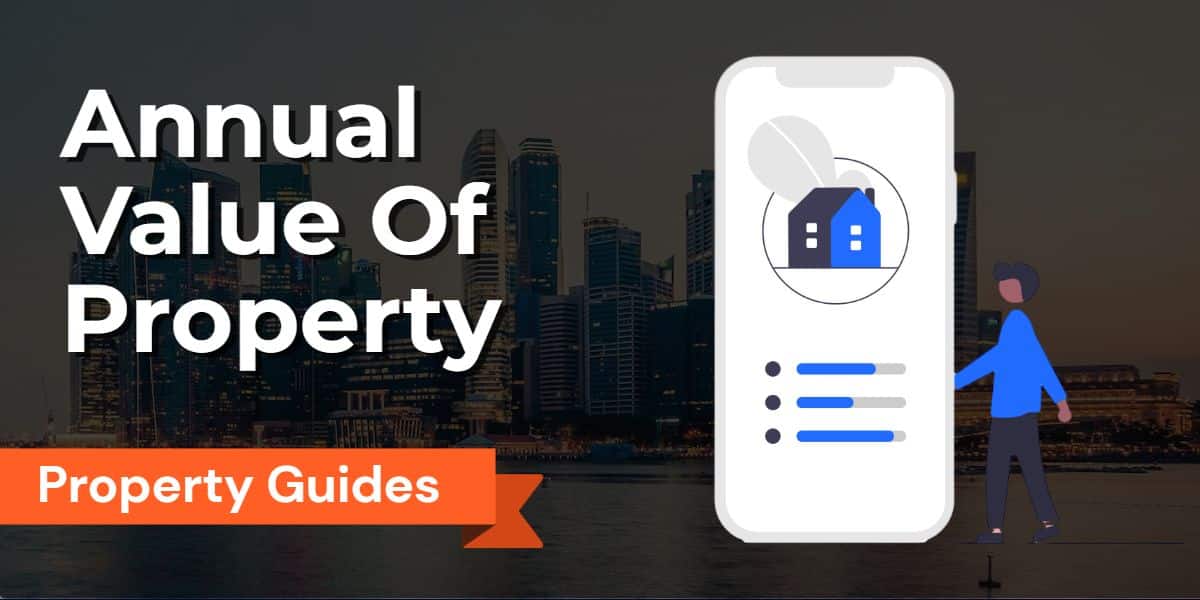
There is no fix rules on how much commission should the buyer, seller, landlord or tenant should pay their agent.
You may use the following market practice as a reference
| Value | Lease Period | Commission |
|---|---|---|
| Above $3500 | 2 Years | 1 Month (Landlord Agent) 1 Month (Tenant Agent) |
| 1 Year | Half Month (Landlord Agent) Half Month (Tenant Agent) |
|
| Below $3500 | 2 Years | 1 Month (Landlord Agent) 1 Month (Tenant Agent) |
| 1 Year | Half Month (Landlord Agent) Half Month (Tenant Agent) |
| Property Type | Seller | Buyer |
| Private Property | 2% (Up to 4%) | Nothing |
| HDB Resale | 2% | 1% |
In this article, we’ll delve into the world of property agent commissions, exploring everything from the basics of what they are to the factors that affect their rates.
Understanding how commission fees work can help you make informed decisions and negotiate effectively, whether you’re a potential buyer, seller, tenant, or landlord.
Get ready to navigate the ins and outs of property agent commissions and take charge of your real estate journey!
Key Takeaways
| Key Takeaways | Description |
|---|---|
| What is a property agent commission? | A property agent commission is a fee a property agent charges for facilitating a real estate transaction. It is typically a percentage of the selling or rental price of the property and is paid upon completion of the transaction. |
| Who pays for the property agent commission? | In Singapore, the party responsible for paying the property agent commission varies depending on the transaction type. For private property sales and purchases, the seller usually pays the commission fee. The commission fee is typically split equally between the landlord and tenant in rental transactions. In HDB resale transactions, both the buyer and seller usually pay for their respective property agent commissions. |
| Why do property agents charge commission fees? | Property agents charge commission fees to compensate for their services in facilitating real estate transactions. These services include property advertising, arranging viewings, negotiating prices, and drafting legal documents. |
| The Role of property agents in Singapore’s real estate market | Property agents play a crucial role in Singapore’s real estate market by acting as intermediaries between buyers and sellers, landlords, and tenants. They facilitate transactions and provide valuable services such as property searches, viewings, price negotiations, and guidance through decision-making. |
| How property agents assist buyers and tenants | Property agents assist buyers and tenants by providing property searches, arranging viewings, negotiating prices, and offering insights into the local property market. They help clients make informed decisions and navigate buying or renting a property. |
| How property agents assist sellers and landlords | Property agents assist sellers and landlords by marketing properties, arranging viewings, negotiating prices, drafting legal documents, and providing guidance throughout the selling or renting. They help clients attract potential buyers or tenants, maximize the value of their properties, and ensure smooth transactions. |
| How property agents assist in resale transactions | Property agents act as intermediaries between the buyer and seller in resale transactions. They guide clients through the process, ensure proper documentation, assist with valuations and negotiations, and provide insights into potential challenges. Property agents play a crucial role in facilitating successful and smooth resale transactions. |
| Commission rates and how property agents get paid | Commission rates for property agents in Singapore are determined by the Council for Estate Agencies (CEA) and are typically 1-2% of the sale or rental price. Rates may vary for high-end or commercial properties. Property agents split their commission fees during co-broking based on an agreed-upon percentage between cooperating agents. Payment is typically collected after the transaction is completed, and the commission fee is usually paid by the party who engages in the services of the property agent. |
| Commission structures for different property types | Commission structures vary for different property types. In HDB resale transactions, the commission rate is typically 1% for each party involved. The commission fee is usually one month’s rent split equally between the landlord and tenant for rental transactions. For sales and purchases of private properties, the commission rate is typically 1-2% and paid by the seller. Commission fees for landed and commercial properties are negotiable, depending on location, property value, and services the property agent provides. |
| Co-broking and its benefits | Co-broking is a practice where multiple property agents collaborate to facilitate a transaction. It provides benefits such as a wider pool of potential buyers, more efficient processing, and faster transactions. Property agents split the commission fee based on an agreed-upon percentage, typically paid by the respective parties. |
The Role of Property Agents in Singapore’s Real Estate Market

Property agents are crucial in Singapore’s real estate market, acting as intermediaries between buyers and sellers, landlords and tenants, and facilitating transactions for both parties.
What is a property agent commission
A
This fee is typically a percentage of the selling or
Who pays for the property agent commission
In
For sales and purchases of private properties, the seller usually pays the
The
In the case of
Why do property agents charge commission fees
These services include advertising the property on
What do property agents do for buyers and tenants?
For buyers and tenants, property agents provide valuable services such as property searches, arranging viewings, negotiating the purchase or rental price, and guiding them through the entire process of making an informed decision.
Experienced property agents can also offer insights into the local property market and specific locations, helping prospective buyers and tenants make informed choices.
What do property agents do for sellers and landlords?
For sellers and landlords, property agents provide services such as marketing the property on property portals, arranging viewings, and negotiating the selling or rental price.
Property agents can also assist in drafting the necessary legal documents and providing guidance on the bidding process for prospective buyers and tenants.
How do property agents assist in resale transactions?
During resale transactions, property agents act as go-betweens for the buyer and seller, guiding them through the process and ensuring that all necessary documentation is in order.
Property agents can also assist with valuations and negotiations and provide insights into potential challenges in the resale process.
Commission Rates: How Property Agents Get Paid
Commission rates for property agents in Singapore vary depending on the type of property and the services they provide.
Here are some factors affecting commission rates and a breakdown of standard commission rates for property transactions in Singapore.
How are commission rates for property agents determined in Singapore?
Commission rates for property agents in Singapore are determined by the Council for Estate Agencies (CEA), an industry regulator.
The CEA regulates commission rates to ensure they are fair and transparent for all parties involved.
What is the standard commission rate for property agents in Singapore?
The standard commission rate for property agents in Singapore is typically 1 to 2 percent of the sale or rental price of the property.
However, commission rates can be as high as 3 to 5 percent for some high-end or commercial properties.
What are the different commission structures for different types of properties?
Commission structures for different types of properties in Singapore vary.
For HDB resale transactions, the standard commission rate is typically 1 percent for each party involved.
The commission fee is usually split equally between the landlord and tenant for rental transactions.
For sales and purchases of private properties, the commission rate is typically 1 to 2 percent and is paid by the seller.
Co-Broking: Collaborating for Successful Transactions

Co-broking is a common practice in the real estate industry, whereby two or more property agents work together to facilitate a transaction.
Co-broking can provide benefits for both property agents and clients.
What is co-broking, and how does it work in the real estate industry?
Co-broking is where two or more property agents collaborate to facilitate a transaction.
In co-broking, one property agent represents the buyer or tenant, while another describes the seller or landlord.
Co-broking can provide benefits such as a wider pool of potential buyers, more efficient processing of loan approval and document verification, and faster and more successful transactions.
What are the benefits of co-broking for property agents and clients?
For property agents, co-broking provides access to a broader pool of potential buyers, increasing the chances of a successful transaction.
For clients, co-broking can result in faster and more efficient processing of loan approval and document verification and more successful transactions due to the broader pool of buyers.
How do property agents split their commission fees during co-broking?
During co-broking, property agents typically split the commission fee based on an agreed-upon percentage between the cooperating agents, with the split being paid by the respective parties or as agreed upon.
Commission Structures for Different Property Types
Commission structures for different types of properties in Singapore vary.
The following covers commission rates for various property types and transactions.
How do commission rates for HDB resale transactions differ from private property transactions?
For HDB resale transactions, the commission rate is typically 1 percent for each party involved.
For sales and purchases of private properties, the commission rate is typically 1 to 2 percent and is paid by the seller.
What is the commission rate for rental transactions in Singapore?
The commission fee for rental transactions in Singapore is typically one month’s rent, split equally between the landlord and tenant.
Are commission fees negotiable for landed properties and commercial properties?
Commission fees for landed properties and commercial properties in Singapore are typically negotiable, depending on factors such as the property’s location, the property’s selling or rental price, and the services provided by the property agent.
Factors Affecting Property Agent Commission in Singapore

Several factors affect the commission rates charged by property agents in Singapore.
It is important to note that a higher commission rate does not necessarily guarantee better service or a more successful transaction.
What factors affect the commission rates charged by property agents in Singapore?
Factors affecting commission rates charged by property agents in Singapore include the property’s location, the property’s selling or rental price, the services provided by the property agent, and the experience and reputation of the property agent.
How do property agents justify their commission fees?
Property agents justify their commission fees by highlighting the value they provide through their services, such as their expertise in the local real estate market, ability to negotiate the best possible price for their clients, and ability to ensure a smooth and successful transaction.
What is the relationship between the property agent commission rate and the value of a property?
There is no clear relationship between the property agent’s commission rate and the value of a property.
Commission rates are typically determined by various factors, including the location and type of the property, services provided by the property agent, and the experience and reputation of the property agent.
The Importance of Negotiating Commission Fees
It is essential to negotiate commission fees with property agents in Singapore.
Buyers and sellers can save on costs by doing so, while property agents can still earn a fair commission for their services.
Is it possible to negotiate commission fees with property agents in Singapore?
Yes, commission fees with property agents in Singapore are negotiable.
Buyers and sellers should know the standard commission rates and services provided by property agents and negotiate accordingly to ensure a fair and reasonable commission fee.
How can property buyers and sellers negotiate commission fees effectively?
Effective negotiation of commission fees with property agents in Singapore involves being informed about the standard commission rates and services provided by property agents and being willing to negotiate based on the value of the services.
The commission payment is agreed upon between the property agent and the client.
The client can be the property’s buyer, tenant, landlord, or seller.
In most cases, the commission fee is paid by the party who engages in the services of the property agent for buyer pays.
How is the commission fee collected?
The commission fee is typically collected after the transaction is completed.
The property agent will prepare an invoice for the commission fee, which is payable upon the completion of the transaction.
The payment is usually made through the property agent’s estate agency.
The Role of Property Agents in Singapore’s Property Market

What is the job of a property agent?
Property agents play a crucial role in the real estate industry.
Their primary responsibility is to connect clients with properties that meet their specific needs and requirements.
They mediate between the property’s buyer, tenant, landlord, or seller.
Property agents also provide guidance and expertise to clients throughout the entire process of buying, selling, or renting a property cpf.
How does a property agent help buyers and tenants?
When a buyer or tenant engages in the services of a property agent, they gain access to a wealth of knowledge and expertise about the property market.
Property agents can provide information on available properties that match the client’s specific needs and preferences.
They can also assist with the viewing process, provide insights into the local neighborhood, and guide clients through bidding.
What are the benefits of using a property agent?
The benefits of using a property agent are numerous.
A property agent provides buyers and tenants access to a wide range of properties and expert guidance throughout finding and securing the right property.
Property agents offer landlords and sellers marketing expertise, negotiation skills, and access to a broad network of potential buyers or tenants.
Overall, property agents are a valuable resource for anyone looking to buy, sell, or rent property in Singapore.
Commission Rates: How Property Agents Get Paid

What is the standard commission rate in Singapore?
In Singapore, the standard commission rate for property agents is typically 2% of the sale price of the property or one month’s rent for a lease.
However, commission rates are negotiable and can be influenced by various factors.
How much commission do property agents earn?
The commission earned by a property agent depends on the sale or rent price of the property, as well as the commission rate negotiated with the client.
For example, if the property’s sale price is S$1,000,000 and the agreed-upon commission rate is 2%, the agent would earn S$20,000.
What factors affect property agent commission rates?
Several factors can influence the commission rate negotiated between the property agent and their client.
These factors can include the type of property being bought, sold, or rented, the property’s location, the transaction’s complexity, and the experience of the property agent.
Co-Broking: Collaborating for Successful Transactions
What is co-broking?
Co-broking is a process where two or more property agents collaborate on a transaction for a client.
This typically occurs when one property agent has a listing their client is interested in, but another has a buyer or tenant interested in the same property.
How does co-broking work in a property transaction?
When two or more property agents enter into a co-broking arrangement, they agree to split the commission fee for the transaction.
This allows both property agents to earn a commission for their contributions to the transaction.
What are the benefits of co-broking for property agents?
Co-broking can be beneficial for property agents in several ways.
Property agents can expand their networks by working together on transactions, gaining access to new listings, and build more significant client relationships.
Additionally, co-broking can help reduce the workload of individual property agents, making it easier for them to serve their clients more effectively.
Commission Structures for Different Property Types

How does commission for HDB resale transactions work?
In HDB resale transactions, the commission fee is usually paid by the seller of the property.
The commission rate is typically set at 1% of the sale price for the property.
What is the commission rate for rental transactions?
For rental properties, the commission rate is typically one month’s rent for a lease lasting one year.
Do commission rates differ for different types of properties?
Yes, commission rates can differ for different properties, depending on their market value and complexity.
For example, commission rates for private properties may be higher than those for HDB flats due to their higher market value.
Factors Affecting Property Agent Commission Rates
What are the factors that influence commission rates?
Several factors can influence commission rates for property agents.
These include the property’s type and location, the transaction’s complexity, and the property agent’s experience level.
How can location affect commission rates?
The location of a property can impact commission rates as some areas may be more challenging to sell or lease than others.
Properties in high-demand areas and competition may have lower commission rates than those in less popular sites.
What is the impact of the property’s age on commission rates?
The age of a property can also impact commission rates, with newer properties typically attracting higher commission rates.
This is because more unique properties tend to have higher market values and require more marketing efforts than older properties.
The Importance of Negotiating Commission Fees
Why is it important to negotiate commission fees?
Negotiating commission fees is essential as it allows clients to get the most competitive and fair rate for the services the property agent provides.
Clients can negotiate for lower commission rates based on factors such as the value of the property, competition in the market, and the experience of the property agent.
Are property agents free to negotiate commission fees with their clients?
Yes, property agents are free to negotiate commission fees with their clients.
Clients must deal with the property agent to ensure that they get a fair and competitive rate for the services provided.
What are some tips for negotiating commission fees?
Some tips for negotiating commission fees include researching the current market rates, understanding the scope of services the property agent provides, and leveraging any relationships or connections the client may have.
Property Agent Commission in HDB Resale Transactions

How is commission calculated in HDB resale transactions?
In HDB resale transactions, the commission fee is usually calculated based on 1% of the property’s sale price.
Who pays the commission fee in HDB resale transactions?
The property seller in HDB resale transactions usually pays the commission fee.
What is the Role of the Council for Estate Agencies (CEA) in commission for HDB resale transactions?
The CEA regulates the commission rates charged by property agents in Singapore.
This includes setting guidelines and enforcing regulations to protect consumers in the real estate industry.
Rental Commission: Exploring the Landlord-Tenant Dynamic
How is rental commission calculated?
For rental properties, the commission is typically one month’s rent for a lease lasting one year.
Who pays the rental commission fee?
In rental transactions, the landlord usually pays the rental commission fee.
How does the landlord-tenant relationship impact rental commission fees?
The relationship between the landlord and tenant can impact rental commission fees.
For example, if the landlord has a good relationship with the tenant, they may be more willing to pay a higher commission to the property agent for their services.
Additionally, a positive relationship between the landlord and tenant can increase the likelihood of the tenant renewing their lease, generating more business for the property agent.
In conclusion, commission rates play an essential role in the real estate industry in Singapore.
Property agents are integral to the buying, selling, and renting process and are typically compensated through commission fees.
While commission rates are generally negotiable
Commission Policies of Property Portals in Singapore
Understanding how Property Portals Charge Commission
The largest property portal in Singapore charges commission fees for services rendered.
Property agents and agencies can advertise their property listings on the portal for a fee and agree to pay a certain commission percentage or amount upon a successful transaction.
This commission is usually factored into the selling price of the property.
The Pros and Cons of Using Property Portals
One advantage of using property portals is the broader selection of properties that can be viewed.
However, there are also drawbacks to using these platforms.
Property agents may exclusively work with a single portal, limiting the selection of properties you can view.
Additionally, agents may prioritize listings on these portals, even if they are not the best fit for your needs.
Alternative Platforms for Property Transactions
Aside from property portals, other platforms can be used for property transactions.
Lower-end rental properties, for example, can be found on the HDB Resale Portal.
In the luxury property segment, specialized real estate agencies offer a premium selection of properties.
You can also try talking to a Sole Property Agent through the Council of Estate Agents (CEA) if you want a more personalized approach.
Council for Estate Agencies (CEA): Regulating Commission Practices
How CEA Regulates Commission Practices
The Council for Estate Agencies (CEA) is the central authority regulating the real estate industry in Singapore.
The agency provides guidelines for commission practices and ensures that real estate agents adhere to these guidelines.
CEA-registered property agents must abide by these guidelines and maintain professional service standards.
CEA’s Penalties for Violating Commission Guidelines
The CEA has strict penalties for real estate agents who violate commission guidelines.
These penalties can include revocation or suspension of an agent’s license.
If you suspect a property agent is engaging in unethical practices, you can report the matter to the CEA for investigation.
Getting to Know a CEA-Registered Property Agent
Working with a CEA-registered property agent can give you peace of mind regarding property transactions.
These agents must adhere to professional standards of service and ethics, ensuring that you receive the best possible assistance in your property transaction.
Always verify an agent’s CEA registration before engaging their services.
Understanding the Costs Involved in Property Agent Commission

How Property Agents Calculate Commission Fees
Real estate commissions are usually calculated based on a percentage of the selling price of the property.
The commission amount can range from 1-3% of the selling price, although other factors may come into play.
Factors that Affect Commission Fees
The type of property transaction can affect commission fees.
Resale flats, for example, usually carry a lower commission because they are more common and in lower demand.
Expensive properties and those located in prime locations may have higher commission fees because selling them requires more effort.
Real estate agents may also charge different commission fees based on the amount of work involved in the transaction.
How to Negotiate Commission Fees with Property Agents
It is possible to negotiate commission fees with property agents.
However, it is essential to understand that commission fees are a way for agents to earn a living, and they may not accept lower fees if it means compromising their income.
Always discuss commission fees before engaging an agent’s services, and be open to negotiation to find a mutually beneficial agreement.
Ethics and Professionalism in Property Agent Commission
Can Property Agents Charge Different Fees for the Same Service?
Property agents may charge different fees for the same service, depending on the amount of work involved in the transaction.
However, they cannot charge discriminatory fees based on race or nationality.
If you feel you are being charged unfairly, you can report the matter to the CEA for investigation.
Rules on Dual Representation
Dual representation occurs when an agent represents the buyer and the seller in a property transaction.
While this is legal in Singapore, strict rules govern this practice to ensure that agents act in the best interests of both parties.
If you are engaging an agent for dual representation, ensure they are fully transparent about any conflicts of interest and act in good faith.
Ensuring a Successful Property Transaction through Professionalism and Ethics
Professionalism and ethics are essential in ensuring a successful property transaction.
Property agents should always strive to offer the best possible service and ensure that all transactions are conducted fairly and transparently.
Working with a CEA-registered property agent can help ensure your transaction is handled professionally and ethically.
Common Misconceptions about Property Agent Commission
Myth: Property Agents Only Care About Their Commission
While the commission is essential to a property agent’s income, reputable agents should prioritize their client’s needs above their financial gain.
Property agents prioritizing commission over their clients’ needs may not operate within the industry’s ethical guidelines and should be reported to the CEA for investigation.
Myth: Buyers and Sellers Can Save Money by Not Using Property Agents
While buying or selling a property without an agent is possible, it can be a significantly more challenging task.
Property agents have in-depth market knowledge and can help buyers and sellers navigate the transaction process more effectively.
Using a property agent may also lead to a faster transaction and ultimately save you money in the long run.
Debunking Other Common Misconceptions About Property Agent Commission
Other common misconceptions about property agent commission include believing that agents will only show expensive properties or that landlords always pay the commission.
These beliefs are untrue, and working with a reputable property agent is essential to avoid falling prey to these myths.
Tips for Buyers and Sellers to Navigate Property Agent Commission

Understanding the Importance of a Tenancy Agreement
A tenancy agreement is a legal contract outlining the tenancy terms between a landlord and a tenant.
It is essential to have a tenancy agreement in place to ensure that both parties are fully aware of their obligations and responsibilities.
A property agent can help draft and review a tenancy agreement to ensure it is legally binding and fair to both parties.
Choosing the Right Property Agent for Your Needs
Choosing the right property agent is essential in ensuring a successful transaction.
Look for agents with a good reputation and positive feedback from previous clients.
Check that they are CEA-registered and discuss your needs and expectations upfront to ensure a good fit.
Negotiating Commission Fees: Dos and Don’ts
Being upfront and transparent with your property agent is essential when negotiating commission fees.
Be clear about your budget and expectations and be willing to compromise to find a mutually beneficial agreement.
Avoid making demands or ultimatums, as these can damage the relationship and make it difficult to achieve a successful transaction.
Conclusion
In conclusion, understanding property agent commissions is crucial when engaging in real estate transactions in Singapore.
Property agents are vital in facilitating these transactions, providing valuable services to buyers, sellers, landlords, and tenants.
The commission rates for property agents are typically determined by the Council for Estate Agencies (CEA) and can vary based on the type of property, its location, and the services provided.
Negotiating commission fees to ensure a fair and competitive rate is essential.
Additionally, co-broking can benefit property agents and clients, providing access to a broader network and increasing the chances of a successful transaction.
If you found this article helpful, we encourage you to check out our other blog articles for more information and insights into the real estate market in Singapore.
Frequently Asked Questions
What is a property agent commission?
Property agent commission is the fee or payment made to a property agent for assisting the landlord or tenant in a property transaction.
How does the property agent commission work in Singapore?
In Singapore, the industry standard is for the landlord to pay their agent a one-month commission while the tenant does not need to pay any commission.
However, the tenant may engage a property agent to represent them, and the agent may collect a commission or co-broking fee, which is factored into the commission amount paid by the landlord.
Are there specific rules on commission in Singapore?
Yes, in Singapore, the Council of Estate Agencies has set rules on commission schemes, fees payable, and the charge and collect GST.
The industry standards are also taken into consideration when it comes to commission.
When do I need to pay the property agent commission?
As a tenant in Singapore, you do not need to pay any commission.
However, if you engage a property agent to represent you, you may have to pay a fee or commission to the agent.
As a landlord, you usually need to pay your agent a one-month commission after a successful transaction.
Who pays the property agent commission in Singapore?
In Singapore, the landlord usually pays the property agent commission.
However, if a tenant engages a property agent to represent them, the commission or co-broking fee may be factored into the commission amount paid by the landlord.
What happens if both the landlord and tenant engage property agents?
In this situation, the commission is typically split between the landlord’s and tenant’s agents.
In Singapore, it is common for the landlord to pay their agent a one-month commission and for the tenant’s agent to collect a commission or co-broking fee, which is factored into the commission amount paid by the landlord.
What is co-broke, and how does it work?
Co-broke is when two or more agents work together to close a deal.
In Singapore, it is common for the tenant’s agent to co-broke with the landlord’s agent.
The commission or co-broking fee may be factored into the commission amount paid by the landlord.
What are the risks of dealing with devious landlords?
Devious landlords may exploit their tenants and avoid paying the property agent commission by evicting them prematurely.
To prevent this, it is advisable to work with experienced property agents with negotiation power and knowledge of the legal agreement in Singapore.
Do I need to engage a property agent to buy or sell a property?
Engaging a property agent can help navigate the Singapore property market, especially if you lack experience in negotiation or are unsure about the legal entanglements.
However, if you have knowledge or experience in the industry, you may choose to handle the transaction yourself.
What are the benefits of engaging a property agent?
Engaging a property agent can help you make informed and expensive decisions, especially when buying or selling a property.
Property agents have access to an extensive network of prospective landlords, buyers, and investment advisors who can provide a rough guide on the property market.
They can also offer additional services such as coordinating viewings, appointments with lawyers, and helping you negotiate the terms of your sale or lease.




















